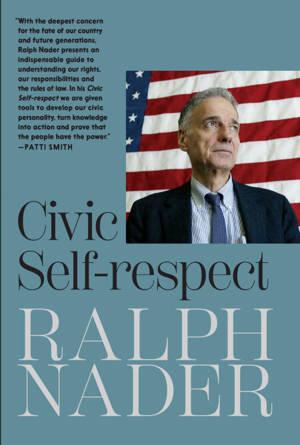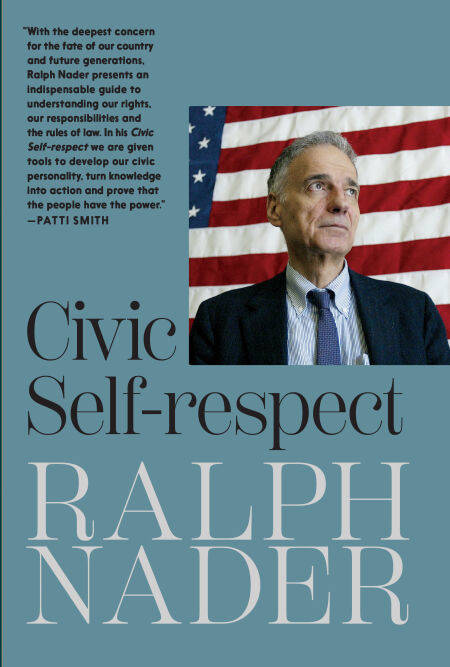
Bedankt voor het vertrouwen het afgelopen jaar! Om jou te bedanken bieden we GRATIS verzending (in België) aan op alles gedurende de hele maand januari.
- Afhalen na 1 uur in een winkel met voorraad
- In januari gratis thuislevering in België
- Ruim aanbod met 7 miljoen producten
Bedankt voor het vertrouwen het afgelopen jaar! Om jou te bedanken bieden we GRATIS verzending (in België) aan op alles gedurende de hele maand januari.
- Afhalen na 1 uur in een winkel met voorraad
- In januari gratis thuislevering in België
- Ruim aanbod met 7 miljoen producten
Zoeken
Omschrijving
An inspiring exploration of democracy that separates the concept of a citizen into various roles, providing a clarifying mission to all who read this call to action and civic participation.
In this concise volume, Ralph Nader, our trusted voice on corporate power and civic resistance, goes right to the most basic taproots of an aspiring democracy—its people and their roles in creating and sustaining community. These roles, including citizen, voter, worker, taxpayer, consumer, and parent, contribute to civic self-respect, and one's own significance in society.
As federal judge Learned Hand said in 1944 during a famous brief speech at Central Park, New York City—neither the laws, the courts or other related institutions can be saved without the underlying exercise of the democratic spirit by the people. Civic Self Respect argues the importantace to recognize the centrality in the development of a civic personality, as distinguished from a private personality with the two co-existing for a moral life participating in the common good. As Nader's mother said when her friends would wonder how she could be raising four children and still have so much time for community engagements: “What's the difference?” One depends on each other—the family and the community.
This book argues for how important it is for our educational system to teach the essentials of civic responsibility beyond its occupational or technical emphasis, because the emergence of such a public-minded personality is so essential for understanding the world and shaping civil societies.
In this concise volume, Ralph Nader, our trusted voice on corporate power and civic resistance, goes right to the most basic taproots of an aspiring democracy—its people and their roles in creating and sustaining community. These roles, including citizen, voter, worker, taxpayer, consumer, and parent, contribute to civic self-respect, and one's own significance in society.
As federal judge Learned Hand said in 1944 during a famous brief speech at Central Park, New York City—neither the laws, the courts or other related institutions can be saved without the underlying exercise of the democratic spirit by the people. Civic Self Respect argues the importantace to recognize the centrality in the development of a civic personality, as distinguished from a private personality with the two co-existing for a moral life participating in the common good. As Nader's mother said when her friends would wonder how she could be raising four children and still have so much time for community engagements: “What's the difference?” One depends on each other—the family and the community.
This book argues for how important it is for our educational system to teach the essentials of civic responsibility beyond its occupational or technical emphasis, because the emergence of such a public-minded personality is so essential for understanding the world and shaping civil societies.
Specificaties
Betrokkenen
- Auteur(s):
- Uitgeverij:
Inhoud
- Aantal bladzijden:
- 160
- Taal:
- Engels
Eigenschappen
- Productcode (EAN):
- 9781644212790
- Verschijningsdatum:
- 14/04/2025
- Uitvoering:
- E-book
- Beveiligd met:
- Adobe DRM
- Formaat:
- ePub

Alleen bij Standaard Boekhandel
+ 10 punten op je klantenkaart van Standaard Boekhandel
Beoordelingen
We publiceren alleen reviews die voldoen aan de voorwaarden voor reviews. Bekijk onze voorwaarden voor reviews.









